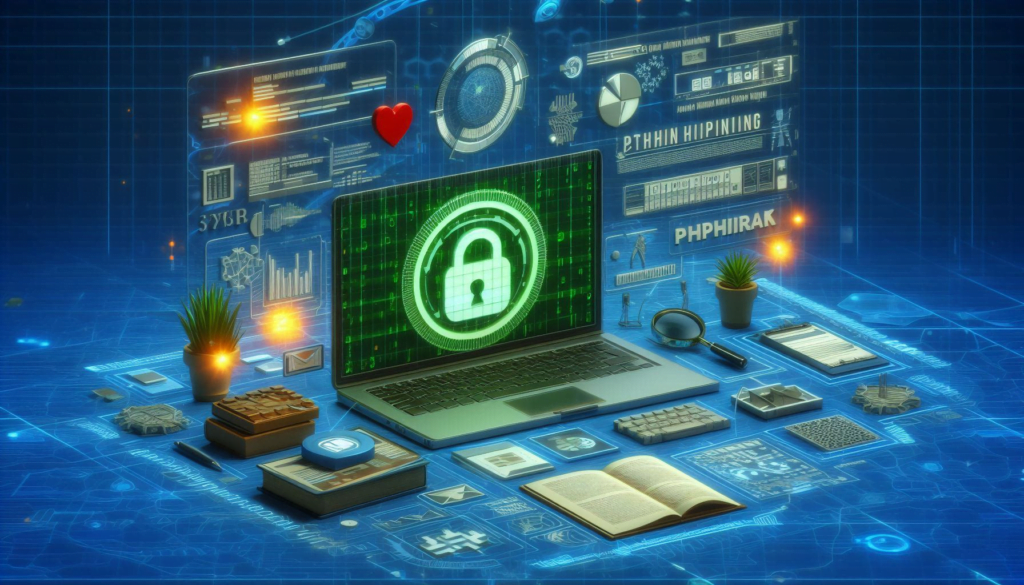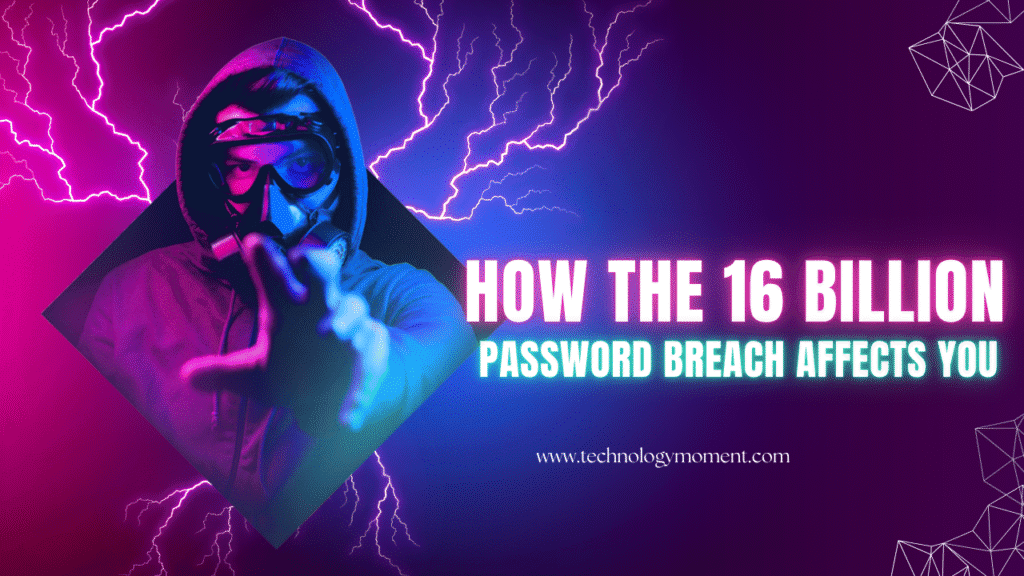Welcome to Technology Moment, your go-to destination for exploring the latest advancements in technology, cybersecurity, and digital innovation. In today’s ever-evolving digital landscape, safeguarding sensitive data and preventing cyber threats has become more critical than ever.
Our latest feature dives deep into the world of Certified Ethical Hackers (CEH)—the cybersecurity experts trained to think like hackers but act with integrity. Discover how CEH certification equips professionals with the skills needed to protect businesses, organizations, and individuals from cyber threats. Stay tuned as we break down the essentials of becoming a CEH, career benefits, and why ethical hacking is vital for today’s digital defense.
The Certified Ethical Hacker (CEH) certification is a globally recognized credential offered by EC-Council that validates an individual’s skills in identifying, preventing, and mitigating cybersecurity threats. The CEH certification empowers cybersecurity professionals with the expertise to think and act like malicious hackers but in a lawful and ethical manner. By doing so, it helps organizations strengthen their security systems against cyber threats and vulnerabilities.
What is CEH?
The Certified Ethical Hacker (CEH) certification provides formal training in the techniques and tools used by cybercriminals to infiltrate networks and systems. However, unlike malicious hackers, CEH professionals use these skills to protect systems rather than exploit them. The primary goal is to test the security strength of an organization by finding vulnerabilities before they can be misused by real attackers.
CEH-certified professionals simulate cyberattacks (known as penetration tests) on networks, applications, and devices, ensuring the security infrastructure is robust enough to withstand real-world threats. The certification is highly respected in the industry for its comprehensive curriculum and hands-on training in ethical hacking methodologies.
Importance in the Cybersecurity World
The rise of cyber threats like ransomware, phishing attacks, and data breaches has made it crucial for businesses and governments to stay one step ahead of cybercriminals. CEH professionals play a vital role in this landscape by:
- Preventing Data Breaches: By identifying and fixing security gaps, CEH professionals prevent data leaks and cyber espionage.
- Building Trust: Companies with a robust security framework gain customer trust and safeguard their reputation.
- Compliance and Standards: CEH certification aligns with various security compliance frameworks like GDPR, HIPAA, and ISO standards, ensuring regulatory adherence.
- Global Recognition: The CEH certification is recognized across the globe, making it a valuable asset for professionals seeking careers in ethical hacking and penetration testing.
CEH not only helps protect digital assets but also creates a safer cyber environment by empowering individuals with the right skills to defend against modern cyber threats.
Table of Contents
Who is a Certified Ethical Hacker?
A Certified Ethical Hacker (CEH) is a skilled cybersecurity professional trained to identify, assess, and fix vulnerabilities in computer systems and networks using the same tools and techniques as malicious hackers—but with legal and ethical intent. They play a vital role in safeguarding organizations from potential cyber threats by proactively securing systems before hackers can exploit them.
Definition and Role:
A Certified Ethical Hacker is a security expert who specializes in testing and securing IT infrastructures. They are often referred to as “white-hat hackers” because they use their hacking skills for ethical purposes rather than malicious intent. The EC-Council (International Council of E-Commerce Consultants) issues the CEH certification, verifying that a professional has the knowledge and skills required to perform penetration tests and security assessments.
Key Responsibilities of a CEH:
CEHs perform a wide range of tasks aimed at enhancing cybersecurity measures. Some of their core responsibilities include:
- Conducting Security Audits: CEHs assess the overall security posture of an organization’s IT infrastructure by simulating cyberattacks.
- Penetration Testing: They perform controlled hacking attempts to identify weak points in networks, applications, and hardware.
- Identifying Vulnerabilities: CEHs pinpoint software bugs, misconfigurations, and gaps in security protocols that could be exploited.
- Reporting and Documentation: After testing, they prepare detailed reports outlining discovered vulnerabilities, their impact, and suggested countermeasures.
- Implementing Security Solutions: CEHs help organizations apply patches and security controls to prevent future breaches.
- Staying Updated on Threats: As cyber threats evolve, CEHs must stay informed about the latest hacking techniques and defense strategies.
Difference Between a CEH and a Malicious Hacker:
The primary difference between a Certified Ethical Hacker and a malicious hacker lies in intent and authorization:
- CEH: Works with permission from the organization, following a legal contract. Their goal is to protect data and prevent unauthorized access.
- Malicious Hacker: Works without consent, often for personal gain, causing harm, theft, or damage to data and systems.
Why Organizations Hire CEHs:
- Proactive Defense: CEHs help prevent security breaches before they occur.
- Compliance Requirements: Many industries require penetration testing for compliance with standards like ISO 27001, GDPR, and PCI DSS.
- Data Protection: CEHs safeguard sensitive data from theft and misuse, ensuring customer trust and business continuity.
A Certified Ethical Hacker acts as the frontline defense in the modern digital world, ensuring businesses stay secure from ever-evolving cyber threats.
Why Become a Certified Ethical Hacker?
In today’s digital landscape, cybersecurity threats are more rampant than ever. With data breaches, malware attacks, and ransomware becoming common, businesses and organizations face significant risks. This rising tide of cyber threats has fueled the demand for skilled professionals who can defend against such attacks. Here’s why pursuing a Certified Ethical Hacker (CEH) certification can be a game-changer in your cybersecurity career:
1. Rising Demand for Cybersecurity Experts
The world is facing a shortage of qualified cybersecurity professionals. According to reports, millions of cybersecurity jobs remain unfilled globally, with a growing demand for specialists who can prevent and respond to cyber threats effectively. As a CEH, you become a key player in protecting sensitive data and digital infrastructure.
- Cybercrimes are predicted to cost the world over $10 trillion annually by 2025.
- Governments and corporations are actively seeking certified professionals to strengthen their security measures.
2. Career Growth and Lucrative Opportunities
Once certified, you become eligible for roles such as:
- Penetration Tester (Ethical Hacker)
- Security Analyst
- Cybersecurity Consultant
- Vulnerability Analyst
- Forensic Analyst
Since CEH is globally recognized, it allows you to explore job opportunities in different countries, providing flexibility and career advancement.
3. Contribution to Global Cybersecurity
Becoming a CEH is not just about career benefits—it’s about making a difference. Ethical hackers play a crucial role in safeguarding sensitive information, preventing data breaches, and maintaining privacy in the digital age. By choosing this path, you help:
- Secure financial institutions from fraud.
- Protect government data from cyber espionage.
- Ensure user data privacy for tech companies.
Your skills can contribute to a safer digital environment for millions of users worldwide.
4. Industry Recognition and Credibility
The CEH certification is offered by EC-Council, a globally respected authority in cybersecurity education. Earning this certification validates your skills and knowledge in ethical hacking and penetration testing, giving you an edge over non-certified candidates in job interviews and promotions.
- HR departments often prioritize certified professionals for cybersecurity roles.
- It serves as a benchmark for your technical expertise and ethical responsibility.
5. Stay Ahead of Cyber Threats
The CEH certification equips you with the latest tools, techniques, and methodologies used by malicious hackers. This knowledge allows you to stay ahead of cybercriminals and understand how to think like a hacker—while remaining on the right side of the law.
Key skills include:
- Identifying vulnerabilities in systems.
- Using penetration testing tools effectively.
- Understanding malware, viruses, and attack vectors.
6. Legal and Ethical Knowledge
A critical aspect of CEH training is understanding the legal boundaries of hacking. As an ethical hacker, you are trained to follow strict professional and ethical standards, ensuring you operate within the law while testing systems for vulnerabilities.
Skills Required for CEH Certification
To become a Certified Ethical Hacker (CEH), you need to develop a strong set of technical and analytical skills that align with the responsibilities of an ethical hacker. Here’s a detailed breakdown of the essential skills required to achieve the CEH certification:

1. Technical Proficiency
A CEH professional must possess advanced technical knowledge, including a deep understanding of various aspects of computer systems, networks, and security protocols. Key areas include:
- Operating Systems Mastery: Familiarity with Windows, Linux, and macOS environments.
- Networking Concepts: Proficiency in TCP/IP, subnetting, DNS, DHCP, firewalls, and VPNs.
- Encryption and Cryptography: Understanding how data encryption works and its role in cybersecurity.
- Cloud Security Basics: Knowledge of securing cloud environments and their vulnerabilities.
2. Ethical Hacking Tools Expertise
An ethical hacker must be skilled in using various tools to perform vulnerability assessments, penetration testing, and security audits. Some essential tools include:
- Nmap (Network Mapper): For network scanning and vulnerability detection.
- Metasploit: For penetration testing and exploiting vulnerabilities.
- Wireshark: For packet analysis and network troubleshooting.
- Burp Suite: For web application security testing.
Familiarity with these tools is crucial for performing ethical hacking tasks efficiently.
3. Programming and Scripting Knowledge
While not mandatory, having basic programming and scripting knowledge can significantly benefit CEH candidates. Programming helps in:
- Understanding Malware and Exploits: Identify and reverse engineer malware or exploit code.
- Automation of Tasks: Use scripting for automating penetration tests.
- Key Languages: Python, Bash, PowerShell, JavaScript, and C/C++.
4. Problem-Solving and Analytical Thinking
Ethical hackers often face complex cybersecurity challenges that require sharp analytical skills and creative problem-solving abilities. This involves:
- Critical Thinking: Analyze security risks from multiple angles.
- Root Cause Analysis: Identify the origin of security vulnerabilities.
- Lateral Thinking: Approach problems from unconventional angles to uncover hidden threats.
5. Knowledge of Security Policies and Compliance Standards
A CEH must be well-versed in global cybersecurity frameworks and legal standards, including:
- ISO/IEC 27001: Information security management.
- GDPR: Data protection and privacy standards.
- HIPAA: Healthcare data security regulations.
- NIST Framework: Security best practices for organizations.
Understanding compliance helps ensure ethical hacking practices remain legal and within organizational guidelines.
6. Malware Analysis and Threat Detection
A core skill for CEH certification involves the ability to identify and analyze various types of malware, such as:
- Viruses, Worms, and Trojans.
- Ransomware and Spyware.
- Rootkits and Keyloggers.
This involves understanding how malware operates, its impact, and effective methods to mitigate threats.
7. Social Engineering Awareness
Since many cyber threats originate from human error, CEH professionals need to understand social engineering tactics like:
- Phishing Attacks.
- Pretexting and Baiting.
- Impersonation and Tailgating.
Recognizing these tactics helps prevent attacks targeting human vulnerabilities.
8. Hands-On Experience and Practical Skills
Theoretical knowledge isn’t enough; CEH certification emphasizes practical, real-world cybersecurity skills such as:
- Penetration Testing: Simulating real-world attacks to find vulnerabilities.
- Security Audits: Evaluating the security posture of systems and networks.
- Incident Response: Managing and mitigating security breaches.
CEH Certification Levels Explained in Detail
The Certified Ethical Hacker (CEH) program offers multiple certification levels to validate different skill sets and expertise levels in ethical hacking. These levels are designed to progressively assess a cybersecurity professional’s practical knowledge, skills, and hands-on experience. Here’s a breakdown of the CEH certification levels:
1. CEH (ANSI)
The CEH ANSI certification is the standard entry-level CEH credential, accredited by the American National Standards Institute (ANSI). It tests a candidate’s theoretical understanding of ethical hacking concepts and techniques through a structured multiple-choice exam.
- Focus: Fundamental knowledge of ethical hacking concepts.
- Exam Format: 125 multiple-choice questions.
- Duration: 4 hours.
- Passing Criteria: Typically 70%, but varies depending on question difficulty.
- Ideal For: Beginners in ethical hacking and cybersecurity roles.
2. CEH Practical
The CEH Practical level is an advanced certification that tests hands-on skills through a simulated real-world cyber environment. Candidates must demonstrate their ability to perform ethical hacking tasks and identify vulnerabilities using various tools and techniques.
- Focus: Practical application of ethical hacking skills.
- Exam Format: 20 practical challenges in a lab environment.
- Duration: 6 hours.
- Passing Criteria: 70%.
- Key Skills Tested:
- Network scanning.
- Vulnerability identification.
- Web application security.
- Malware analysis.
- Social engineering attacks.
- Ideal For: Professionals seeking validation of hands-on cybersecurity skills.
3. CEH Master
The CEH Master is the highest certification level in the CEH program. It combines both theoretical knowledge and practical expertise. To achieve this, candidates must pass both the CEH ANSI (knowledge-based) and CEH Practical (skills-based) exams.
- Focus: Mastery of both theoretical concepts and practical skills.
- Requirements: Must pass both CEH ANSI and CEH Practical exams.
- Benefits:
- Recognized as a highly skilled ethical hacker.
- Provides a comprehensive understanding of cybersecurity threats and countermeasures.
- Ideal For: Cybersecurity professionals aiming for expert-level recognition and leadership roles in ethical hacking.
4. EC-Council’s Additional Cybersecurity Certifications Related to CEH
Beyond CEH, EC-Council offers complementary certifications for further specialization:
- Certified Penetration Testing Professional (CPENT) – Advanced penetration testing techniques.
- Licensed Penetration Tester (LPT) – Expert-level certification for penetration testing professionals.
- Certified Network Defender (CND) – Network defense skills.
Choosing the Right CEH Level
- Beginners: Start with CEH ANSI to build foundational knowledge.
- Intermediate: CEH Practical is ideal for those who want to validate their hands-on skills.
- Experts: CEH Master provides comprehensive proof of expertise for senior roles.
Why Understanding CEH Levels Matters?
- Structured Learning: Helps professionals progress systematically.
- Career Advancement: Higher certifications can lead to better roles and salaries.
- Skill Validation: Provides employers with proof of both knowledge and practical skills.
Eligibility Criteria for CEH Certification
Becoming a Certified Ethical Hacker (CEH) involves meeting certain eligibility criteria before you can sit for the certification exam. These criteria are designed to ensure that candidates have the necessary foundational knowledge and experience to understand and apply ethical hacking techniques effectively.
1. Educational Background
To qualify for the CEH certification, there is no strict educational requirement. However, having a strong foundation in computer science, information security, or a related field is highly beneficial. A Bachelor’s degree in fields like Computer Science, Information Technology, or Cybersecurity will give you an edge, though it’s not mandatory.
For those without a formal education in IT or computer science, gaining experience through hands-on work or personal learning can also be enough.
2. Work Experience Requirements
Work experience is crucial when applying for CEH certification. EC-Council, the certifying body for CEH, requires candidates to have at least two years of work experience in the Information Security domain. This experience should cover areas such as network security, penetration testing, and vulnerability assessment.
However, there’s a workaround for those who don’t meet the experience requirement:
- CEH Training Course Option: If you do not have the required two years of work experience, you can attend an official EC-Council CEH training course. The completion of this course will waive the work experience requirement. The training provides the necessary theoretical and practical knowledge to prepare you for the CEH exam.
- Training Options: You can choose between instructor-led classroom training, online self-paced training, or live virtual training.
3. Prerequisite Knowledge
While there’s no strict educational qualification required, candidates should have a basic understanding of networking concepts and security principles before pursuing CEH. These concepts form the backbone of ethical hacking and are frequently tested during the CEH exam.
EC-Council recommends that you have a foundational knowledge of the following areas:
- Networking: Familiarity with network technologies like IP addressing, routers, switches, DNS, and DHCP.
- Operating Systems: Understanding of both Windows and Linux systems, as ethical hackers often work with both environments.
- Security Tools: Familiarity with basic security tools like firewalls, encryption, and IDS.
- Cybersecurity Concepts: Basic understanding of malware, phishing, social engineering, and other cybersecurity threats.
If you lack this knowledge, it may be helpful to pursue a beginner-level cybersecurity course before applying for the CEH exam.
4. Age Limit and Nationality Restrictions
There are no specific age restrictions for applying for the CEH certification, and candidates from any nationality can apply. The only limitation is the requirement for either a minimum of two years of experience or completing the official training program from EC-Council.
5. Alternative Routes to Certification
If you don’t meet the eligibility requirements for the CEH exam, you can take alternative steps to gain access to the exam:
- EC-Council’s CEH Training: As mentioned earlier, attending an official training course can help you bypass the work experience requirement. Once the course is completed, you can apply directly for the exam.
- Other Certifications: If you already have other cybersecurity certifications such as CompTIA Security+ or CISSP, they may help demonstrate your knowledge in cybersecurity. However, these certifications do not directly substitute for the work experience requirement.
How to Get CEH Certified?
Becoming a Certified Ethical Hacker (CEH) requires a structured approach, from meeting eligibility criteria to preparing and passing the certification exam. Below, we’ll walk through each step of the certification process in detail.
1. Meet the Eligibility Requirements
There are two primary paths to eligibility:
- Option 1: Formal Training through EC-Council
- EC-Council, the organization that offers the CEH certification, provides an official training program. If you choose this path, you need to complete an official CEH training course from an EC-Council accredited training center. This training covers all the essential concepts needed to pass the exam.
- The official training can be taken in various formats, including:
- In-person training at a certified EC-Council center.
- Online training through webinars or virtual instructor-led classes.
- Self-paced learning via the EC-Council’s iLearn platform.
- By completing this training, you will meet the requirement to sit for the exam, which consists of a five-day course covering a broad range of hacking techniques and tools.
- Option 2: Work Experience
- If you already have substantial work experience in the cybersecurity field, you can apply for the CEH exam without taking the formal training.
- To verify this experience, you’ll need to submit a proof of employment, which could be a job description or employment records detailing your cybersecurity experience.
If neither option works for you, you can also choose to undergo a CEH exam application review with EC-Council, providing a comprehensive list of your experience and qualifications in cybersecurity. If approved, you can take the exam.
2. Choose Your Learning Path
Once you are eligible, you can choose to prepare for the CEH exam through different learning paths:
- Instructor-Led Training (ILT)
- A more traditional approach to learning, where certified instructors guide you through the CEH curriculum. You’ll be taught everything from penetration testing to risk management. The benefit of this method is that you can ask questions and engage in hands-on labs.
- It’s an excellent choice for those who prefer structured learning environments and real-time interactions.
- Self-Paced Online Training
- For those who prefer studying on their own time, EC-Council offers self-paced online courses that include video lessons, study materials, and virtual labs.
- This learning mode provides flexibility but requires high self-discipline and time management.
- Books and Practice Exams
- If you are an independent learner, you can use books like the CEH Official Study Guide or CEH Exam Cram to guide your preparation.
- Practice exams and online question banks are also vital to help you get used to the exam format and types of questions asked.
3. Register for the CEH Exam
Once you feel prepared for the exam, it’s time to register. The registration process includes the following steps:
- Create an Account with EC-Council
- You need to register with EC-Council by creating an account on their official portal. This account will allow you to manage your exam registration and track your progress.
- Schedule Your Exam
- The CEH exam is available through EC-Council’s global network of testing centers, including Pearson VUE, a leading provider of exam delivery. You can schedule your exam at any Pearson VUE testing center convenient for you.
- You will also have the option to take the exam remotely (online proctored exam), allowing you to sit for the exam from home or anywhere else with a stable internet connection.
- Exam Fees
- The exam fee varies, but generally, it costs around $1,199 for the CEH exam. If you have completed EC-Council’s official training, the fee may be included in the training cost.
4. Take the CEH Exam
- Footprinting and Reconnaissance
- Scanning Networks
- System Hacking
- Malware Threats
- Web Application Hacking
- Cloud Computing Security
The passing score for the CEH exam is 70%, but keep in mind that the exact passing percentage may vary slightly depending on the difficulty level of the exam you receive.
5. Prepare for the CEH Exam
The key to passing the CEH exam is preparation. Some useful tips for success include:
- Study the Official EC-Council Curriculum
- Whether you take the formal training or opt for self-study, make sure to study the EC-Council curriculum in-depth. This curriculum covers all necessary domains and prepares you for the questions you will encounter.
- Practice with Labs and Real-World Scenarios
- Ethical hacking is a practical skill. It’s essential to practice what you learn in real-world environments, especially using virtual labs and environments like Kali Linux or Metasploit.
- Use Practice Exams
- Take multiple practice exams to get familiar with the types of questions on the exam. Practice exams will help you identify your weak areas and focus on improving them before the actual test.
- Join Study Groups or Forums
- Many aspiring CEH professionals join study groups, either online or in-person. These forums provide opportunities to exchange tips, learn from others, and stay motivated.
6. After You Pass the Exam
At this point, you’ll be recognized as a Certified Ethical Hacker by EC-Council. Your certification is valid for three years.
To maintain your certification, you need to earn EC-Council Continuing Professional Education (CPE) credits. Every year, you must complete 20 CPE credits, which you can earn by attending relevant courses, webinars, or cybersecurity conferences. After three years, you’ll need to renew your certification.
Key Topics Covered in CEH Training
The Certified Ethical Hacker (CEH) certification provides comprehensive knowledge and hands-on experience in ethical hacking techniques. Below are some of the key topics covered in CEH training:
- Footprinting and Reconnaissance
The first stage in hacking involves gathering information about the target system. Ethical hackers use techniques like Google hacking and social engineering to collect data such as domain names, IP addresses, employee information, etc. This helps to map out the target network and identify potential vulnerabilities. - Scanning Networks
This topic covers scanning the target’s network to find live hosts, open ports, and active services. Tools like Nmap are commonly used to analyze the network’s architecture, detect firewalls, and identify vulnerabilities in systems that can be exploited. - Vulnerability Analysis
Vulnerability scanning tools are used to check for weaknesses in systems. In this section, you’ll learn about methods to identify known vulnerabilities such as outdated software versions or improperly configured systems. Understanding these vulnerabilities is key to protecting systems from attacks. - Malware Threats
This topic focuses on understanding different types of malware, including viruses, worms, Trojans, and ransomware. Ethical hackers need to know how malware spreads, how to identify infected systems, and how to prevent malware attacks. - System Hacking
Ethical hackers learn techniques to penetrate systems by exploiting weaknesses. Topics covered include password cracking, privilege escalation, and system enumeration. The aim is to find loopholes in a system’s defense mechanisms to help patch them before malicious hackers exploit them. - Sniffing and Spoofing
In ethical hacking, sniffing refers to monitoring network traffic to extract sensitive data, while spoofing involves impersonating another device or user to bypass security systems. This section teaches how to detect and prevent such attacks. - Social Engineering
Social engineering is a psychological manipulation tactic used by hackers to trick people into divulging confidential information. Ethical hackers must know how to identify and defend against social engineering attacks. - Web Application Security
Ethical hackers need to understand the common vulnerabilities in web applications, such as SQL injection, cross-site scripting (XSS), and cross-site request forgery (CSRF). They must also know how to test, secure, and defend web apps from these vulnerabilities. - Wireless Networks and Mobile Device Security
This topic covers the security risks in wireless networks and mobile devices. CEH training teaches how to secure Wi-Fi networks, identify vulnerabilities in Bluetooth connections, and protect against attacks such as rogue access points and man-in-the-middle (MITM) attacks. - Cloud Security
As more organizations shift to cloud computing, understanding cloud security is critical. The CEH curriculum includes topics on securing cloud infrastructures, identifying risks associated with cloud services, and using various tools to protect cloud-based data. - Cryptography
Cryptography is the art of securing communications. CEH training provides in-depth knowledge of encryption techniques, digital signatures, hashing, and public key infrastructure (PKI). Understanding cryptography helps ethical hackers assess the strength of a system’s data protection.
Benefits of CEH Certification
The Certified Ethical Hacker (CEH) certification provides numerous advantages for cybersecurity professionals, organizations, and individuals looking to enhance their career prospects. Here are the key benefits:
- Validation of Skills
The CEH certification validates your skills in ethical hacking and cybersecurity. It proves that you have the necessary knowledge to perform penetration testing, security auditing, and vulnerability assessments in a responsible and legal manner. This recognition is valuable both for career advancement and credibility. - Enhanced Job Prospects
As cybersecurity threats continue to rise, organizations are increasingly looking for skilled ethical hackers to secure their systems. A CEH certification demonstrates that you have the expertise to safeguard company assets. This makes certified professionals more attractive to employers in sectors like finance, government, healthcare, and IT. - Industry Recognition
This certification is recognized by top companies, including government agencies, and can be a crucial differentiator when applying for jobs or securing contracts. The certification is offered by EC-Council, which has a strong reputation for providing quality training and certification in cybersecurity. - Career Growth and Opportunities
Cybersecurity is a rapidly growing field, and the demand for skilled professionals continues to rise. CEH certification not only increases your chances of landing a job but also opens doors for promotions and career growth. Certified professionals are often given leadership roles in cybersecurity teams, making them a vital part of the organization’s defense strategy. - Increased Salary Potential
Certified Ethical Hackers generally earn higher salaries compared to their non-certified counterparts. According to various industry reports, the salary of a CEH holder is considerably higher, especially with additional experience. The CEH certification also positions you to take on higher-paying roles such as penetration tester, security consultant, or ethical hacking specialist. - Ability to Defend Against Cyber Attacks
The training and knowledge gained during CEH certification equip professionals with the skills to identify potential security threats and proactively defend against them. - Building a Professional Network
Becoming CEH certified connects you to a global community of cybersecurity professionals. As part of the EC-Council network, you’ll gain access to forums, events, and resources that will help you stay up-to-date with the latest cybersecurity trends and best practices. - Credibility in the Marketplace
Many clients and businesses require that their security consultants and teams hold industry-recognized certifications like CEH. Holding this certification ensures that you meet the highest standards in the field and fosters trust with clients who rely on your expertise to protect their digital assets.
CEH vs. Other Cybersecurity Certifications
When it comes to cybersecurity certifications, CEH stands out as one of the most recognized credentials for ethical hackers. However, there are other important certifications in the field, and understanding the differences can help you choose the best path for your career. Let’s compare CEH with a few other prominent cybersecurity certifications:
CEH vs. CISSP (Certified Information Systems Security Professional)
- Focus:
The CEH focuses on the technical side of ethical hacking, teaching professionals to think like hackers in order to protect systems from cyberattacks. It involves hands-on skills like penetration testing, vulnerability assessment, and exploitation techniques.CISSP, on the other hand, is more comprehensive, covering broader aspects of information security management, risk management, and organizational security. CISSP is highly regarded for roles involving security leadership and governance. - Ideal For:
CEH is ideal for those who want to become penetration testers, security researchers, or ethical hackers. CISSP is more suitable for those who want to focus on security management or become a Chief Information Security Officer (CISO). - Certifying Body:
CEH is offered by the EC-Council, while CISSP is administered by (ISC)², a different body focused on strategic and governance roles in cybersecurity.
CEH vs. OSCP (Offensive Security Certified Professional)
- Focus:
The OSCP certification by Offensive Security is known for its extreme focus on real-world penetration testing skills. Unlike CEH, which can be more theoretical, OSCP places a strong emphasis on practical skills through a challenging exam where candidates must exploit vulnerabilities in a controlled environment. - Difficulty:
OSCP is often considered more challenging than CEH because of its rigorous hands-on exam. It’s ideal for those who want to prove their ability to perform penetration tests under pressure. - Ideal For:
CEH is a great starting point for those new to ethical hacking, while OSCP is recommended for individuals who are already familiar with basic penetration testing concepts and want to master them at a deeper level.
CEH vs. CompTIA Security+
- Focus:
CompTIA Security+ provides foundational knowledge of cybersecurity. However, it does not delve deeply into penetration testing like CEH does. - Ideal For:
Security+ is perfect for those just starting in cybersecurity, providing a solid understanding of general security concepts. In contrast, CEH is for professionals specifically interested in ethical hacking and penetration testing.
Career Paths After CEH Certification
After obtaining the Certified Ethical Hacker (CEH) certification, there are various career paths you can explore, as this credential opens up numerous opportunities in the cybersecurity field. Here are some of the most common roles for CEH-certified professionals:
1. Penetration Tester (Ethical Hacker)
- Role: Penetration testers are hired to simulate cyberattacks on an organization’s systems to identify vulnerabilities that could be exploited by malicious hackers.
- Skills Needed: Knowledge of various hacking tools, scripting languages, and penetration testing methodologies.
- Job Responsibilities: Conducting penetration tests, reporting vulnerabilities, suggesting remediation strategies, and assisting in system hardening.
2. Security Analyst
- Role: Security analysts are responsible for monitoring networks and systems for any signs of unauthorized access or cyberattacks.
- Skills Needed: Strong understanding of firewalls, intrusion detection/prevention systems (IDS/IPS), and network security tools.
- Job Responsibilities: Analyzing security incidents, reviewing logs for signs of attacks, and implementing security measures to protect sensitive data.
3. Cybersecurity Consultant
- Role: As a cybersecurity consultant, you would assess and provide recommendations for improving an organization’s security posture. This can involve everything from designing secure networks to advising on best practices for data protection.
- Skills Needed: Broad knowledge of security frameworks, risk management, and regulatory compliance (e.g., GDPR, HIPAA).
- Job Responsibilities: Conducting security assessments, advising on cybersecurity strategies, creating security policies, and helping organizations comply with industry standards.
4. Security Engineer
- Role: Security engineers design and implement security measures for systems and networks to protect against cyber threats.
- Skills Needed: Expertise in firewall configuration, intrusion detection systems, VPNs, encryption technologies, and more.
- Job Responsibilities: Configuring security tools, analyzing and addressing vulnerabilities, and continuously improving system defenses.
5. Incident Responder
- Role: Incident responders investigate and manage security breaches, ensuring that attacks are mitigated and lessons are learned to prevent future incidents.
- Skills Needed: Understanding of forensic tools, incident management processes, and an ability to work under pressure.
- Job Responsibilities: Responding to security incidents, investigating breaches, gathering evidence, and helping to recover from attacks.
6. Vulnerability Analyst
- Role: A vulnerability analyst focuses on identifying and assessing vulnerabilities in systems, networks, and software applications.
- Skills Needed: Proficiency in vulnerability scanning tools, knowledge of common attack vectors, and understanding of patch management.
- Job Responsibilities: Running vulnerability scans, analyzing results, and working with teams to patch or mitigate discovered vulnerabilities.
7. Network Security Administrator
- Role: Network security administrators protect the organization’s network infrastructure from threats by maintaining firewalls, VPNs, and other security measures.
- Job Responsibilities: Implementing network security measures, troubleshooting network issues, and ensuring secure communication within the organization.
8. Chief Information Security Officer (CISO)
- Role: The CISO is the executive responsible for the organization’s overall cybersecurity strategy, risk management, and compliance.
- Skills Needed: Strong leadership abilities, strategic planning, and an understanding of both technical and business aspects of cybersecurity.
- Job Responsibilities: Developing security strategies, managing the security team, overseeing compliance, and reporting to executive leadership.
Salary Expectations for CEH Professionals
Certified Ethical Hackers (CEHs) are in high demand due to the increasing need for cybersecurity professionals to combat growing threats in the digital world. Here’s a detailed breakdown of salary expectations for CEH professionals:
- Average Salary Figures
- United States: The average annual salary for a CEH in the U.S. typically ranges from $70,000 to $120,000. However, this can increase depending on experience, location, and company size. In larger cities with a high cost of living, such as San Francisco or New York, salaries can go up to $150,000 or more.
- Europe: In countries like the UK, Germany, and the Netherlands, CEH professionals can expect to earn between €45,000 and €75,000 annually, with senior roles or those in leading firms potentially earning more.
- Asia: The salary range in countries like India, Singapore, and the Philippines can be more varied. In India, for example, the annual salary can start from INR 6,00,000 and go up to INR 20,00,000 for more experienced professionals.
- Factors Influencing Salary
- Experience Level: A professional just starting with a CEH certification may earn on the lower end of the scale, while someone with several years of experience or a specialization (e.g., penetration testing, incident response) can command a higher salary.
- Industry and Role: Companies in sectors like finance, defense, and technology tend to pay higher salaries for cybersecurity roles, including ethical hackers. Additionally, roles such as Penetration Tester, Security Analyst, and Cybersecurity Consultant typically offer higher salaries.
- Certifications and Specializations: Adding more certifications like CISSP (Certified Information Systems Security Professional), OSCP (Offensive Security Certified Professional), or even other EC-Council certifications can push salaries higher.
- Location: As mentioned, salaries tend to be higher in locations with a higher cost of living and a stronger demand for cybersecurity professionals.
- Company Size: Larger companies, particularly those in the tech sector or government-related industries, usually offer more competitive salaries compared to smaller companies or startups.
Challenges Faced by Ethical Hackers
Ethical hacking is an incredibly rewarding career path, but it comes with its own set of challenges. Here’s a look at some common difficulties that Certified Ethical Hackers (CEHs) face in their profession:
- Ethical Dilemmas
- Unlike malicious hackers who exploit systems for personal gain, ethical hackers have to carefully balance their actions. They must avoid any actions that could damage the system or violate laws, even if their intent is to improve security. This is particularly tricky in complex scenarios where vulnerabilities might require a level of testing that could be seen as intrusive.
- Example: A hacker might uncover a vulnerability in a system, but exploiting it to the fullest could lead to severe consequences for the organization. Ethical hackers must determine how far they can go without crossing the line.
- Keeping Up with Evolving Threats
- Cybersecurity is a constantly changing field, with new vulnerabilities, malware, and attack methods emerging regularly. Ethical hackers must continuously update their skills, learn new tools, and stay informed about the latest developments. This means investing in ongoing education and training to stay relevant.
- Example: A hacking technique that works today might be obsolete tomorrow due to newer security measures being put in place by organizations. Ethical hackers must be flexible and adapt quickly to remain effective.
- Legal and Regulatory Issues
- Navigating the legal landscape is another significant challenge for ethical hackers. Ethical hackers are often required to work under specific legal agreements (such as Non-Disclosure Agreements or NDAs), and they must understand the regulatory frameworks that govern cybersecurity in various regions. They need to ensure that their work is always in compliance with local, national, and international laws.
- Example: Performing an authorized penetration test in a jurisdiction that has strict privacy laws could inadvertently violate those laws if certain precautions aren’t taken.
- High-Pressure Environment
- Ethical hackers are often tasked with finding vulnerabilities before malicious hackers can exploit them, which can be a high-pressure job. In many cases, they are working with critical systems that, if compromised, could result in massive financial or reputational damage for a company. The need for accuracy, attention to detail, and quick turnaround times can create a stressful work environment.
- Example: A hacker may have to find and report a vulnerability within a tight deadline. If the vulnerability is found too late, it could potentially lead to an attack that damages the company’s reputation.
- Access to Sensitive Data
- Ethical hackers often have access to sensitive company data during their penetration tests or vulnerability assessments. This responsibility requires a high level of trust, as any misuse of data or breach of confidentiality can result in severe consequences for both the hacker and the organization.
- Example: An ethical hacker might have to access customer data during a security test. If this data is exposed or misused, even unintentionally, it could lead to a data breach.
- Workload and Burnout
- The workload of an ethical hacker can be overwhelming, especially when handling complex systems and working across different clients or industries. With the pressure to constantly find vulnerabilities and address security gaps, ethical hackers can sometimes experience burnout.
- Example: Long hours of testing, monitoring systems, and dealing with security incidents may lead to mental and physical exhaustion.
- Lack of Resources or Tools
- Ethical hackers sometimes face limitations in the resources or tools available to them. Organizations may not provide the best penetration testing software or access to testing environments, making it difficult for hackers to perform thorough security assessments.
- Example: Without the proper hardware or access to the right tools, an ethical hacker might not be able to fully simulate an attack or test all areas of a network.
How to Prepare for the CEH Exam?
Preparing for the Certified Ethical Hacker (CEH) exam can be a challenging but rewarding process.

- Understand the Exam Requirements
- The CEH exam tests your knowledge and ability in ethical hacking and cybersecurity practices. Before starting your preparation, it’s crucial to familiarize yourself with the exam structure, which typically consists of 125 multiple-choice questions to be completed within 4 hours.
- Enroll in an Official CEH Training Course
- The EC-Council offers official training programs that are specifically designed to help you prepare for the CEH exam. These training courses are available in various formats, such as instructor-led training, online classes, or self-paced e-learning. By enrolling in one of these programs, you’ll have access to expert instructors and study materials that are aligned with the exam objectives.
- Use CEH Study Guides and Books
- Invest in CEH study guides and books that are widely recognized within the cybersecurity community. Some popular titles include CEH Certified Ethical Hacker All-in-One Exam Guide by Matt Walker and CEH v11: Certified Ethical Hacker Version 11 Study Guide by Ric Messier. These books will walk you through the concepts and exam objectives and provide practical examples.
- Practice with Labs and Hands-On Exercises
- Ethical hacking is a highly practical field, so it’s essential to get hands-on experience with hacking tools and techniques. Many training courses include access to virtual labs where you can practice penetration testing, scanning networks, and exploiting vulnerabilities in a controlled environment. Hands-on experience will help you understand the theory better and ensure you are prepared for real-world scenarios.
- Take Practice Exams
- Once you’ve studied the topics and completed hands-on exercises, take practice exams to assess your readiness. Practice exams will help you identify areas where you might need further improvement. They also allow you to get familiar with the exam format and time management, which is crucial for the actual test day.
- Join Online Communities and Forums
- There are many online communities and forums where CEH aspirants and certified professionals discuss exam preparation strategies. Websites like Reddit, Stack Exchange, and EC-Council’s own forum can provide valuable insights.
- Review the EC-Council’s Official Exam Blueprint
- The EC-Council provides an exam blueprint that outlines all the topics and subtopics that you need to cover. Reviewing this document will give you a clear roadmap and ensure that you don’t miss out on any important areas. Focus on all areas mentioned in the blueprint, and avoid skipping topics that may seem less important.
- Time Management and Consistency
- Preparing for the CEH exam requires consistent study and good time management. Set aside dedicated study hours each day and create a timetable that allocates time for each subject area. A well-structured study plan will ensure that you cover all topics without feeling overwhelmed.
Conclusion
Becoming a Certified Ethical Hacker (CEH) is a valuable achievement for anyone looking to build a career in cybersecurity. With the increasing number of cyberattacks and the growing demand for cybersecurity professionals, CEH certification is a great way to demonstrate your skills and knowledge in ethical hacking.
By completing the CEH exam preparation process, you’ll gain expertise in various areas, such as penetration testing, vulnerability assessment, network security, and malware analysis. These skills not only open up new career opportunities but also contribute to the global effort of protecting sensitive information from cyber threats.
The CEH certification is a testament to your commitment to ethical hacking and cybersecurity, and it holds significant value in the industry. Whether you aim to become a penetration tester, cybersecurity consultant, or network security engineer, CEH certification can accelerate your career.
Remember, the preparation process can be intense, but with dedication, the right resources, and practical experience, you can succeed. Take your time to study thoroughly, practice regularly, and stay motivated, and soon you’ll be able to proudly hold the CEH certification.
With the cybersecurity field constantly evolving, staying updated with the latest trends, techniques, and tools is essential. CEH certification provides a strong foundation for this continuous learning journey. It’s not just about passing an exam; it’s about equipping yourself with the knowledge and skills to combat real-world cyber threats effectively.
Now, take the first step towards becoming an ethical hacker and embark on a rewarding journey in the world of cybersecurity.
FAQs About Certified Ethical Hacker (CEH)
What is the CEH certification cost?
- The cost of CEH certification can vary depending on your location, whether you’re taking the exam directly through the EC-Council or using authorized training centers. Typically, the exam fee ranges from $1,199 to $1,499. Additionally, there may be extra costs for training courses, books, and other preparation materials.
- The EC-Council offers different training packages, which include both the exam fee and preparatory training. These can range in price, with official courses potentially costing from $2,500 to $5,000 depending on the training method chosen (online, in-person, etc.).
How much time does it take to earn a CEH certification?
- The time it takes to become CEH certified depends on several factors:
- Training duration: If you take a structured CEH training program, it typically lasts 5 to 10 days. However, some self-paced courses or online modules may take longer.
- Prior knowledge and experience: If you already have experience in cybersecurity, networking, or IT security, it may take less time to prepare. For those without any background in these areas, it could take several months to study and practice before attempting the exam.
- Study schedule: It also depends on how much time you dedicate to studying. Some professionals may take a few weeks to a couple of months to adequately prepare for the exam.
Is CEH worth it in 2025?
- Absolutely! As cybersecurity threats continue to grow in complexity, the demand for skilled professionals who can identify and mitigate those threats is higher than ever. CEH certification remains highly respected in the cybersecurity industry and proves to employers that you possess the skills necessary to protect their networks and systems.
- With businesses of all sizes investing more in cybersecurity, CEH-certified professionals are well-positioned to secure jobs in a wide range of industries. In 2025, the certification continues to be a key credential for those looking to advance their careers in ethical hacking and cybersecurity.
Can I become a CEH without coding knowledge?
- Yes, it is possible to become CEH-certified without advanced coding knowledge, but some familiarity with programming languages will certainly help you understand hacking techniques and tools.
- CEH candidates are not required to be expert programmers, but having a basic understanding of languages like Python, JavaScript, and C can enhance your ability to analyze vulnerabilities and automate tasks.
- Many of the CEH training programs are designed to teach you practical skills, and coding is only one part of the curriculum. The focus is more on network security, penetration testing, and ethical hacking tools than on coding. If you’re new to coding, there are numerous online resources that can help you learn the basics, which will strengthen your overall proficiency in ethical hacking.
How to renew CEH certification?
- CEH certification is valid for three years, after which you need to renew it to maintain its validity. The renewal process is based on EC-Council Continuing Professional Education (CPE) credits.
- To renew your CEH certification, you need to earn at least 120 CPE credits within the three-year period. You can accumulate CPE credits by:
- Attending training and conferences.
- Completing online courses.
- Writing articles or blog posts related to cybersecurity.
- Participating in webinars, workshops, or other educational activities.
- If you don’t complete the required CPE credits by the certification expiry date, you can still renew your CEH by paying a recertification fee, which is typically around $80 to $100.













